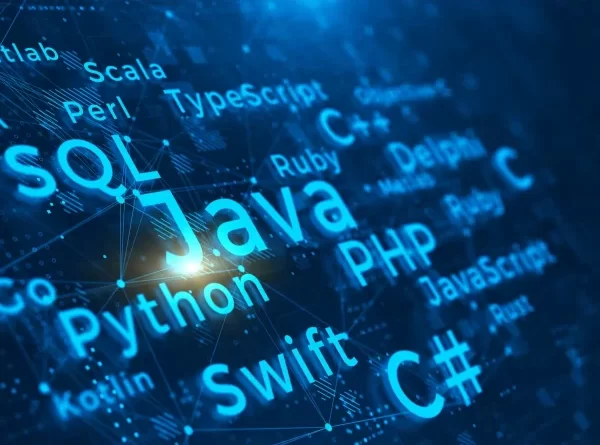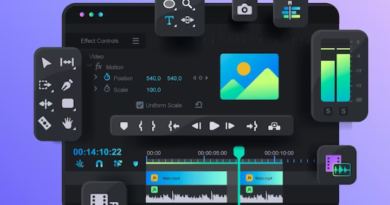Top 5 Programming Languages to Master for Future-Ready Skills
In the fast-paced world of technology, picking the right programming language can make a significant impact on your career. Whether you’re starting your coding journey or looking to upgrade your skills, focusing on languages that are versatile and in high demand is key. Here are the top 5 programming languages to learn, ensuring your skills remain relevant and valuable.
1. Python: The Versatile Powerhouse
Python stands out as one of the most beginner-friendly languages while also offering incredible depth for advanced applications. It’s a staple in fields such as artificial intelligence (AI), data science, and automation. Python’s ease of learning combined with its wide range of uses makes it an essential tool for any coder.
Why Choose Python?
- Simple, readable syntax.
- Huge libraries for AI, machine learning, and data processing.
- Demand spans across various industries like tech, finance, and education.
2. JavaScript: The Web’s Backbone
Why Choose JavaScript?
- Powers most websites and web apps.
- Extensive support for both front-end and back-end development.
- Constantly evolving with new frameworks and libraries.
3. Java: The Enterprise Workhorse
Java has long been the preferred language for developing enterprise-level applications. Its reliability, scalability, and cross-platform abilities make it ideal for building large systems. Whether you’re developing Android apps or diving into cloud computing, Java offers robust performance and stability.
Why Choose Java?
- Platform-independent and great for building large-scale systems.
- Key player in Android app development.
- Proven demand in industries like banking, retail, and healthcare.

4. Swift: The Future of iOS Development
Swift is the go-to language for developing iOS and macOS apps, designed by Apple for speed, safety, and performance. As the mobile app market grows, Swift’s influence continues to rise. If you want to tap into the Apple ecosystem, mastering Swift is a must.
Why Choose Swift?
- Ideal for creating apps for iOS and macOS.
- Simple, efficient, and safer than Objective-C.
- High demand in the growing mobile app sector.
5. Go: The Efficiency Expert
Developed by Google, Go (or Golang) is engineered for efficiency and scalability, making it perfect for cloud services, large systems, and microservices architecture. It’s a performance-driven language that’s gaining popularity in DevOps and backend development.
Why Choose Go?
- Designed for high performance and concurrency.
- Great for cloud-based and scalable applications.
- Increasingly used by major tech companies like Google and Dropbox.
Final Thoughts:
In the ever-evolving world of programming, staying ahead means mastering languages that cater to a wide array of needs. Whether you’re developing web apps, mobile applications, or enterprise-level software, these top 5 programming languages offer the flexibility and power to keep you relevant and competitive in the tech industry.
FAQs:
1. Why is Python a top choice for beginners and professionals?
Python is praised for its straightforward syntax and wide-ranging applications. It’s user-friendly for beginners while being powerful enough for advanced fields like data science, AI, and automation. With strong library support, Python accelerates development across industries.
2. Can JavaScript be used beyond front-end development?
Absolutely! While JavaScript is essential for front-end tasks, it’s also a back-end powerhouse when used with environments like Node.js. This dual capability makes it one of the most versatile languages for building full-stack applications.
3. Why is Java still in demand after so many years?
Java’s ability to run on multiple platforms, its security, and scalability keep it relevant. It’s heavily used in large enterprises, cloud computing, and mobile app development, especially for Android, making it a constant in the tech world.
4. Is Swift the right language for iOS app development?
Yes, Swift is Apple’s preferred language for building apps for iOS and macOS. It offers improved speed, safety, and ease of use compared to older languages like Objective-C, making it essential for those entering the mobile app market.
5. What sets Go apart from other programming languages?
Go, designed by Google, excels in handling high-performance tasks, such as cloud services and microservices. Its simplicity, paired with its ability to manage multiple processes efficiently, makes it ideal for building scalable and distributed systems.
6. Can I learn more than one programming language at once?
Yes, learning multiple languages can broaden your skillset. For example, learning Python alongside JavaScript can give you a deeper understanding of both back-end and front-end development. However, focusing on one language initially helps build a solid foundation.
7. Which programming language is best for building websites?
JavaScript is crucial for website creation, as it controls dynamic and interactive elements. Paired with Node.js, it’s also powerful for server-side tasks. Python is another excellent option, particularly with frameworks like Django for fast web development.
8. What industries benefit most from Go’s performance?
Go is popular in industries dealing with cloud computing, infrastructure, and DevOps. Companies that need high-performance, scalable systems—like Google, Dropbox, and Uber—utilize Go for its efficiency in managing large-scale services.
9. How will learning these programming languages secure my future?
These languages are highly sought after in tech, with applications spanning web development, AI, app creation, and enterprise systems. Learning them equips you with adaptable skills that align with both current and future tech trends.
10. Which language should I start with if I’m new to coding?
Python is an excellent starting point due to its simplicity and readability. Once you’ve built confidence with Python, you can move on to JavaScript for web development or explore other languages like Java or Swift depending on your career goals




